Three discoveries that support the idea of continental drift are: the age and magnetic properties of the sea floor, ocean trenches and _________. 526
sea floor spreading
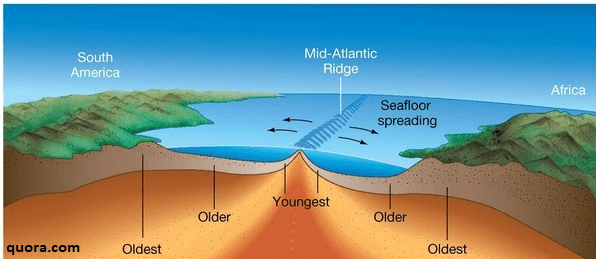
According to Plate Tectonics, the continents were joined in a single large landmass called ________ 245 million (245,000,000) years ago. 525
Pangaea
What doe we call pieces of lithosphere that float and move by convection? 645
tectonic plates
What term refers to 'shaking' inside the Earth? 516
seismic seismic data seismic waves seismograph
seismic
What is the process where molten rock from inside Earth rises through the cracks in ridges, cools and forms new oceanic crust. 526
sea-floor spreading
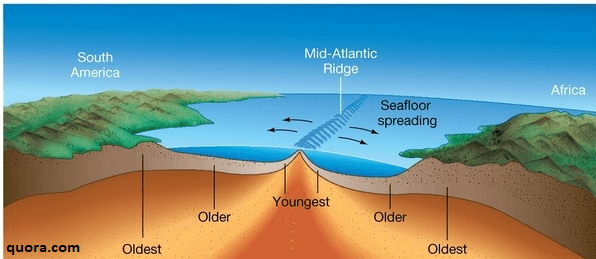
Look at the map on p. 536. What animal's fossils lead scientists to believe that Australia and Antarctica were once next to one another? 536
glossopteris
The process that causes plate tectonics is ____. 532 bottom picture
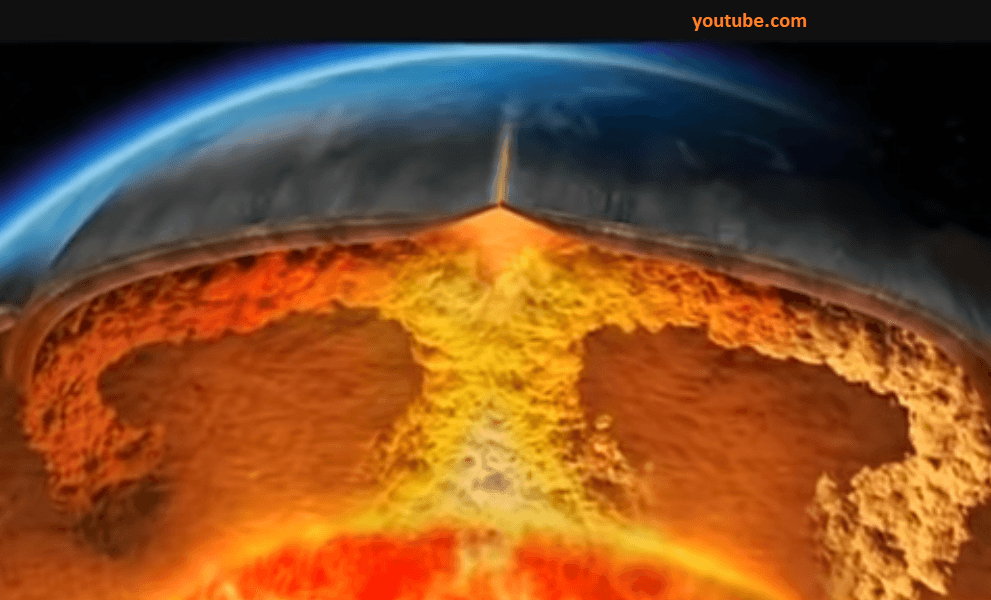
convection

'P' waves and 'S' waves are produced by earthquakes. They are referred to as ____ ____. 516
seismic seismic data seismic waves seismograph
seismic waves
Rock samples from the sea floor reveal that the youngest rock is where? 526 2nd paragraph
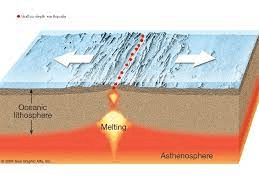
near the ridge
Fifty million (50,000,00) years ago it thought that India collided with Eurasia and began forming what mountains? 525
Himalayas
Sea-floor spreading is the process where molten rock from inside Earth rises through the cracks in ridges because of convection. It cools and forms new oceanic _____. 526
crust
What piece of igneous rock trapped within another rock that tells us what the outer mantle is like? 519
non-foliated metamorphic rock
clastic sedimentary rock
extrusive igneous rock
xenolith
xenolith [pronounced 'zee' no lith']
At 2:14 in this video you find that "...rocks making up the oceanic crust were mostly volcanic and contained ________ and other magnetic minerals." https://www.youtube.com/watch?v=JJEZ3Vizdww
magnetite
Look at the map on p. 536. What fossils lead scientists to believe that Australia and Antarctica were once next to one another? 536
glosopteris
This does not make Earth get larger because, dense oceanic crust sinks into the asthenosphere at _____. 527
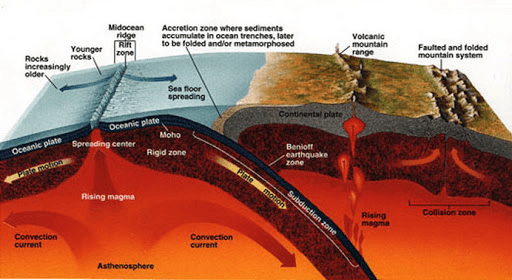
trenches
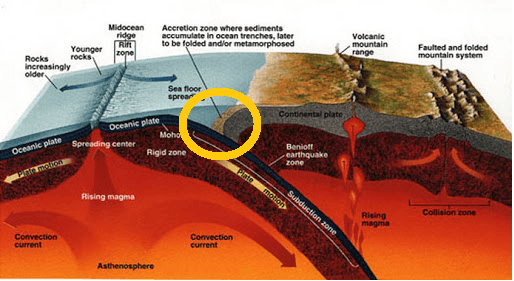
What do we analyze to understand earthquakes and the structure of Earth?
seismic data
Where does sea-floor spreading occur? 526 2nd paragraph
along cracks in the crust
Click on this link and go to slide 13 to answer this question. https://authoring.concord.org/sequences/501/activities/9699/pages/124941/636c334e-d62f-404e-9497-c1e3bb76e80f As you move around the map from the left, going clockwise you see these places as some believe they were in the Late Silurian period: Mexico, Alaska, Greenland, Siberia, Kazakhstan. What's next?
north China
What scientist first theorized that the continents moved across the Earth and were once part of a single continent? 526
(Alfred) Wegener
What piece of igneous rock trapped within another rock that tells us what the outer mantle is like? 519
xenolith [pronounced 'zee' no lith']